The diplomatic relationship between the United States and South Africa has reached a new low as the Trump administration escalates punitive actions against Pretoria. From blacklisting South African envoys to threatening sweeping 30% tariffs on exports, Washington’s hardline stance risks pushing South Africa’s fragile economy into deeper crisis while sidelining it on the global stage.
The latest blow emerged when South Africa’s Democratic Alliance (DA) revealed that the US had denied a diplomatic visa to Mcebisi Jonas, President Cyril Ramaphosa’s newly appointed special envoy and former deputy finance minister. Jonas, also the non-executive chairman of MTN, was appointed in a bid to restore strained ties with the US, but Washington refused to recognize him as an official interlocutor. Ramaphosa’s spokesperson dismissed the DA’s claims as “disinformation” but failed to directly deny them.
This rejection follows a string of incidents highlighting the Trump administration’s hostility toward South Africa. Washington previously cut off aid to Pretoria, accused the government of targeting white citizens, and condemned it for bringing a genocide case against Israel at the International Court of Justice. Adding to the tension, the US has also objected to South Africa’s renewed diplomatic engagement with Iran, a key adversary of Washington. MTN’s 49% stake in IranCell has only further complicated Jonas’s role in navigating these geopolitical minefields.
Analysts suggest the cold shoulder is a deliberate strategy. Priyal Singh of South Africa’s Institute for Security Studies said that if Jonas’s visa denial is confirmed, it signals a broader move by the Trump administration to cut off diplomatic channels. “It’s about isolating South Africa diplomatically and removing pathways for negotiation,” Singh said.
The consequences are already visible. The US has boycotted South Africa’s hosting of key G20 meetings, despite Ramaphosa currently chairing the forum. Top officials such as Treasury Secretary Scott Bessent and Secretary of State Marco Rubio have repeatedly skipped G20 sessions in South Africa, citing concerns over Pretoria’s alleged anti-American stance and geopolitical alignment.
Ramaphosa had previously tried to reset relations, accepting an invitation to the White House in May. However, the visit reportedly turned confrontational when Trump confronted him with disputed footage alleging white genocide in South Africa. Jonas’s absence from the delegation fueled speculation that the envoy was unwelcome in Washington.
Further fueling tensions, former ambassador Ebrahim Rasool was expelled after criticizing Trump’s politics in a leaked think tank speech. Ramaphosa left the post vacant, suggesting a shortage of seasoned diplomats able to repair US relations. Instead, he hoped Jonas could lead strategic engagement with the US private sector and policymakers. But Jonas’s own past criticism of Trump, including calling him a “racist” in 2020, and his links to Iran through MTN have undermined that mission.
The Trump administration’s stance reflects a broader ideological clash. Pretoria’s emphasis on racial justice, economic equity, and global solidarity core elements of its post-apartheid identity, clash sharply with Trump-era US policies. Ramaphosa’s progressive positions on climate change, Palestinian solidarity, and anti-colonial reparations have also drawn ire from Washington.
W. Gyude Moore, a senior policy fellow at the Center for Global Development, said it’s no surprise South Africa is in the crosshairs. “South Africa represents everything the Trump administration’s base is ideologically opposed to Black empowerment, multilateralism, climate justice, and Palestinian advocacy,” he said.
South Africa’s vocal support for Palestinians, especially after filing a genocide case against Israel, has further inflamed tensions. A recent mural in Soweto reading “Soweto 2 Gaza” symbolized growing domestic solidarity with Palestinian rights a stance sharply criticized by the Trump White House.
Meanwhile, the economic implications are severe. Trump’s threatened 30% tariffs on South African exports, set to take effect on August 1, could cost the country up to 100,000 jobs, according to central bank chief Lesetja Kganyago. The agricultural sector is especially vulnerable ironically, the same sector Trump has said he wants to “protect” by offering Afrikaner farmers refugee status in the US.
For a country with an unemployment rate of 32.9%, the looming trade penalties are disastrous. Though South Africa has weathered past diplomatic rifts with Washington, the scale and intensity of this conflict are unprecedented.
Experts believe South Africa will need to urgently diversify its alliances and strengthen economic ties with other global partners to counterbalance Washington’s hostility. But in the meantime, Ramaphosa’s administration faces the stark reality of managing one of its most important diplomatic relationships amid a deepening economic and political storm.


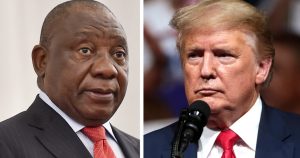

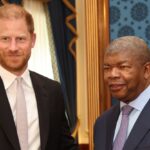
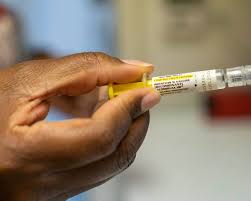
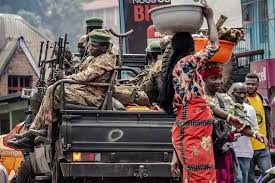

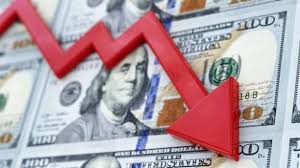


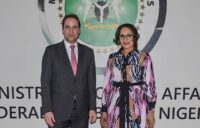


Leave a comment